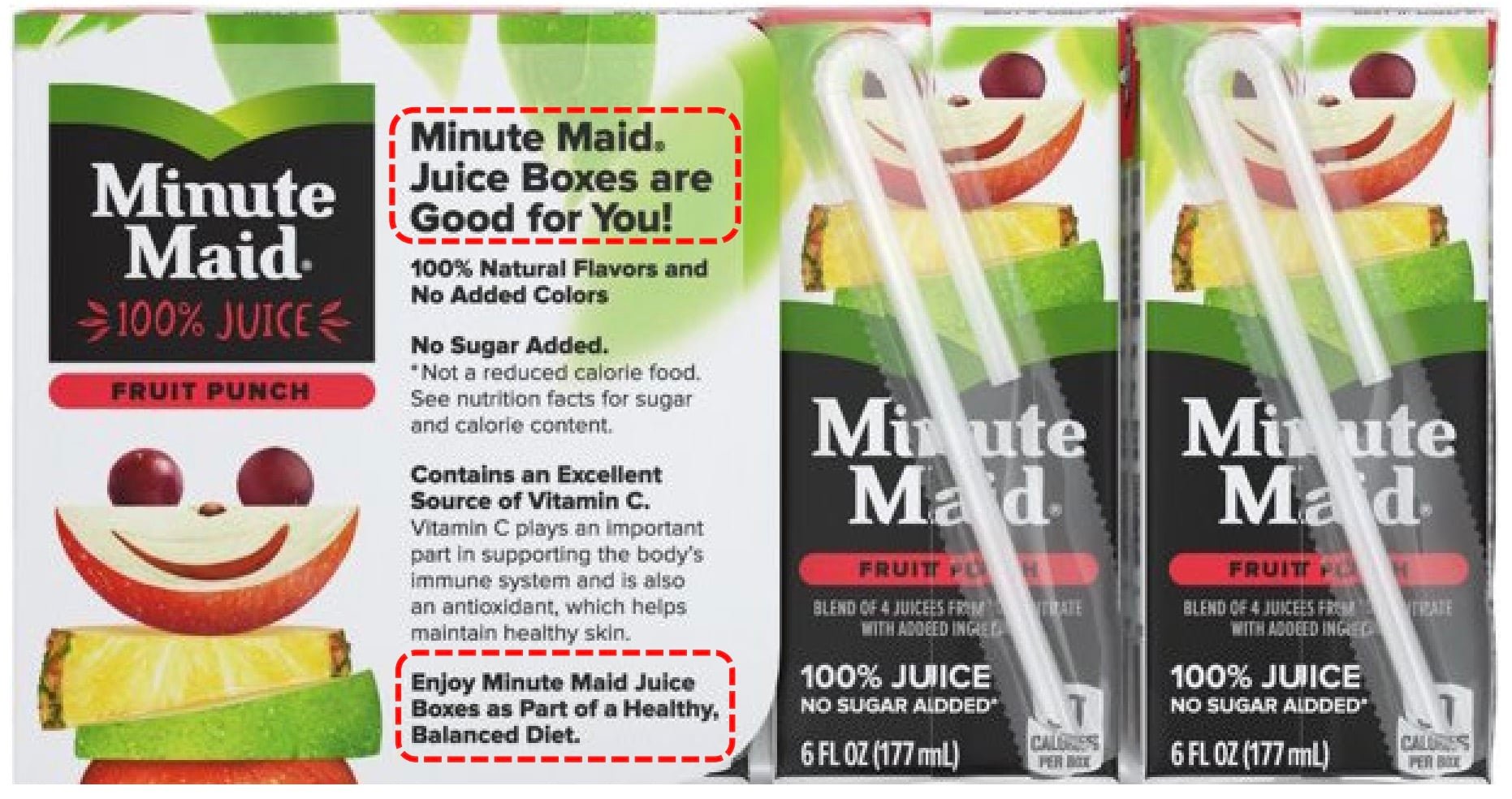SAN FRANCISCO (CN) — When looking for a healthy drink conventional wisdom would suggest fruit juice is a better choice than soda, considering added sugars and sodium in soda and the assumption that fruit juice is all natural.
That conventional wisdom may be wrong, as consumers argued in a federal class action filed in March. The named plaintiff Gary Reynolds seeks to stop Coca-Cola from claiming on packaging that its six-ounce Minute Maid juice boxes are “good for you,” citing health experts who have established that fruit juice is in fact unhealthy, and drinking it can increase the chances of heart disease, type 2 diabetes and other harmful health effects.
“Knowing that parents are looking for healthy beverages for their children, the Coca-Cola Company exploits and deceptively perpetuates the misperception that juice is healthy by marketing and labeling its Minute Maid juice boxes as being ‘Good for You!’ and ‘Part of a Healthy, Balanced Diet,’” Reynolds’ complaint states.
Coca-Cola sought to dismiss the claims in a hearing Thursday afternoon.
Steven Zalesin, an attorney for the soft drink giant, told a federal judge the company’s six-ounce Minute Maid juice boxes did not deceive consumers because the "good for you" claims on the juice boxes were part of implied and explicit nutrient claims.
“We are allowed under FDA rules to make what they call an implied nutrient content claim,” Zalesin said, meaning a claim that the food or drink, because of its nutrient content, may be useful in maintaining healthy dietary practices.
Zalesin said the “good for you” messaging is not misleading because, as the packaging also explains, the juice has zero added sugar and contains vitamin C. The box also explains vitamin C's health benefits.
“This is the company’s description of the product, and why you can enjoy it as part of a healthy diet,” Zalesin said.
U.S. District Judge Vincent Chhabria appeared skeptical, saying the “clear implication” of the messaging is that the juice actively contributes to a healthy diet.
“The U.S. Department of Health and Human Services and the Department of Agriculture say that ‘100% fruit juice without added sugars can be part of a healthy dietary pattern, and that beverages that contribute beneficial nutrients such as 100% juice should be among the primary beverages consumed by Americans,’” Zalesin replied. “We say it’s good for you because it’s got no added sugar, and it’s an excellent source of vitamin C and B and that you can enjoy it as part of an overall healthy and balanced diet.”
Zalesin explained the FDA has never set a guideline for “maximum or correct” daily intake of sugar; rather, the amount it varies from person to person, so there is no way to definitively state that the juice is unhealthy because of its sugar content.
Chhabria pushed back, saying that the pictures of fruit on the juice box could imply to consumers that drinking the juice was as healthy as eating fruit.
“To say that people are going to look at that, and take that as a claim, that this is the equivalent of eating fruit — I mean, we certainly didn’t say that,” Zalesin said.
Any promotion of the juice’s benefits should be considered explicit and implied nutrient claims, Zalesin said.
Paul Joseph, counsel to the plaintiff, argued there are higher standards when the word “healthy” is used to advertise a product, and that nutrition labels on the juice box are not nutrient content claims.
“It’s an issue of line-drawing, of whether or not the 'good for you' messaging is an association of actual nutrient content claims,” Joseph said.
Chhabria, Joseph, and Zalesin all agreed that similar cases have been adjudicated differently around the country and in California.
“We judges are all over the map. We’re eternally inconsistent,” Chhabria said, before promising to take the matter under submission and issue a ruling in the coming weeks.
Subscribe to Closing Arguments
Sign up for new weekly newsletter Closing Arguments to get the latest about ongoing trials, major litigation and hot cases and rulings in courthouses around the U.S. and the world.









